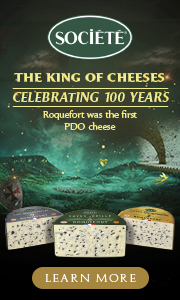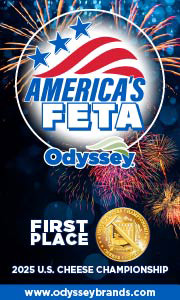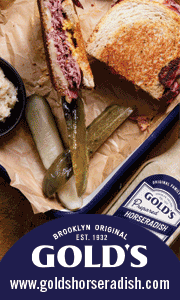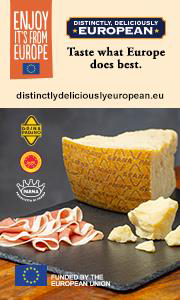Starbucks Outlines Reusable Cup, Recycle App, EV Route Plans
Starbucks has outlined efforts to reduce waste through innovative reusable cup programs, launched a waste and recycling app to support partners’ sustainability efforts and a pilot program with Volvo to help electrify a driving route from the Colorado Rockies to Seattle.
“We have a bold long-term sustainability vision and ambitious goals for 2030,” said Starbucks president and CEO, Kevin Johnson. “Starbucks partners around the world are passionate about protecting our planet and are at the very center of driving the innovation that enables us to give more than we take from the planet.”
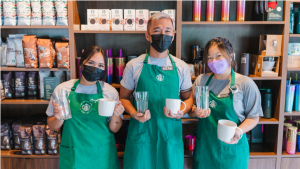 To help reach the company’s goal of reducing waste by 50 percent by 2030, Starbucks is shifting away from single-use plastics and piloting reusable cup programs in six markets around the world. By the end of next year, customers will be able to use their own personal reusable cup for every Starbucks visit in the U.S. and Canada – including in café, drive-thru and mobile order and pay. The goal, by 2025, is to create a cultural movement toward reusables by giving customers easy access to a personal or Starbucks provided reusable to-go cup for every visit.
To help reach the company’s goal of reducing waste by 50 percent by 2030, Starbucks is shifting away from single-use plastics and piloting reusable cup programs in six markets around the world. By the end of next year, customers will be able to use their own personal reusable cup for every Starbucks visit in the U.S. and Canada – including in café, drive-thru and mobile order and pay. The goal, by 2025, is to create a cultural movement toward reusables by giving customers easy access to a personal or Starbucks provided reusable to-go cup for every visit.
Starbucks continues to test multiple “Borrow-A-Cup” and reusable operating models in the United States, United Kingdom, Japan and Singapore, with more countries in the year ahead. In addition, the company continues to encourage customers to bring their own cup and to emphasize for-here-ware as the default sit-and-stay experience, while exploring new customer incentives and technologies, such as cup washing stations at café counters.
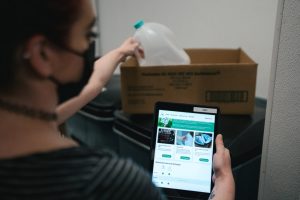 The company is also launching a new Starbucks Partner Waste and Recycling App, developed by partners as part of the Greener Stores Innovation Challenge, to help partners navigate complex and unique store recycling guidelines. The app puts everything partners need to know to reduce waste and recycle in one place; it features store specific information and notifications, a sorting guide and the option to create store specific signage for partners and customers.
The company is also launching a new Starbucks Partner Waste and Recycling App, developed by partners as part of the Greener Stores Innovation Challenge, to help partners navigate complex and unique store recycling guidelines. The app puts everything partners need to know to reduce waste and recycle in one place; it features store specific information and notifications, a sorting guide and the option to create store specific signage for partners and customers.
“Starbucks is spending this year testing innovative new ways to reduce waste and reduce our carbon footprint,” said Michael Kobori, chief sustainability officer. “Some of our best innovations, like the Waste and Recycling App, come directly from our store partners. Our store partners know their customers and communities best. When we work together with our partners, we find better solutions to create a more sustainable future for our planet and people.”
In addition, Starbucks continues to rapidly expand its roster of renewable energy and decarbonization projects in the United States, including a new pilot program with Volvo Cars to electrify the driving route from the Colorado Rockies to the Starbucks Support Center in Seattle, providing a string of familiar, reliable, clean and safe places to recharge themselves and their battery-powered vehicles.
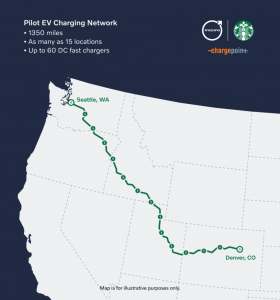 By the end of 2022, Volvo-branded electric vehicle chargers, powered by ChargePoint, will be available at up to 15 Starbucks stores along a 1,350-mile route from the Denver area to the coffee company’s Seattle headquarters, as part of the company’s 2,700 Greener Store portfolio. These DC Fast Chargers will be placed at Starbucks stores about every 100 miles, adding much-needed peace of mind for EV drivers, who we know see today’s limited charging infrastructure as a major barrier to purchase. While customer’s cars are recharging outside, drivers can relax comfortably inside with their favorite Starbucks beverage.
By the end of 2022, Volvo-branded electric vehicle chargers, powered by ChargePoint, will be available at up to 15 Starbucks stores along a 1,350-mile route from the Denver area to the coffee company’s Seattle headquarters, as part of the company’s 2,700 Greener Store portfolio. These DC Fast Chargers will be placed at Starbucks stores about every 100 miles, adding much-needed peace of mind for EV drivers, who we know see today’s limited charging infrastructure as a major barrier to purchase. While customer’s cars are recharging outside, drivers can relax comfortably inside with their favorite Starbucks beverage.
By 2030, Starbucks aspires to lead the retail industry in decarbonization solutions, including Electric Vehicle charging and onsite solar availability at stores and in adjacent locations. Starbucks plans to continue expanding its solar pilot locations to 55 new stores this year.
Gourmet News reports leading companies in corporate responsibility. Subscribe now so you don’t miss anything!
Southern Glazer’s Matches Employee Donations for Ukraine Relief
Southern Glazer’s Wine & Spirits will match 100 percent of all employee donations made to three charitable organizations supporting Ukraine relief during the next 90 days.
Southern Glazer’s has chosen to support World Central Kitchen, United Nations High Commissioner for Refugees and Cooperative for Assistance and Relief Everywhere through its matching campaign for Ukraine relief. Employees are able to contribute through the company’s internal giving platform, VolunCheers Online, in order to be eligible for the donation match.
“Southern Glazer’s stands in support of the Ukrainian people,” said CEO Wayne E. Chaplin. “We are deeply saddened by the crisis and our hearts are with those who have been impacted by this terrible situation. Our family values represent a spirit of inclusiveness and giving back that is part of our cultural DNA, which is why we’ve chosen to support three organizations that have stepped in to provide much-needed aid. Our employees never hesitate to lend a helping hand in times of crisis, and we are happy to amplify their generosity through this campaign.”
To keep up with the specialty food industry, subscribe to Gourmet News.
California Megadrought to Hit Wine Industry Hard
2021 presented an extraordinary level of soil water deficit and irrigation that could sometimes be ineffective due to the severity of the California megadrought, according to a new report on two =counties, Sonoma and Napa, conducted by Agrology.
“2021 data shows that dry farmed and irrigated vineyards managed to narrowly avoid destructive levels of water stress and those levels challenged even hearty dry-farmed vineyards,” said Adam Koeppel, co-F\founder and CEO. “With 2022 predicted to be the driest in 1,200 years, it’s imperative that growers be judicious in their use of irrigation water. Predictive Agriculture technology will help you optimize your water usage down to the drop.”
Agrology reported that up until harvest, soil moisture and water deficit impacts from the drought appeared significant across Napa and Sonoma. Soil Water Potential extremes of nearly -3,000 kPa were recorded at irrigated vineyards, and more than -5,000 kPa at dry farmed vineyards. For reference, the University of California recommends initiating irrigation at midday leaf water potential of 1,000-1,500 kPa, corresponding to pre-dawn soil water potential of 1,800-2,300 ko. This indicates that irrigation could not keep up with the drought. In addition, dry farming was challenged with a lack of micro nutrient delivery, as nutrients delivered via drip irrigation systems did not have enough water to reach deep root zones.
“Unfortunately growers now have to contend with the constant threats of a changing climate,” added Koeppel. “It’s imperative that growers can track and understand all important elements in realtime–from water to soil to smoke. We built Agrology to do just that. One system and one app to give growers a view into what’s happening in that moment and the near future.”
Subscribe now to Gourmet News for specialty food industry updates.





